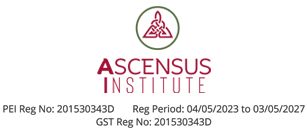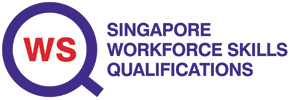Certificate in Guest Services
Overview
In light of the rapidly growing presence of catering, food, and beverage businesses in Singapore and other countries, this course exposes learners (students) to industry-based knowledge and practical skills through results-driven training in restaurant prototyping.
The course aims to provide learners (students) with sought-after industry-based knowledge and practical skills through results-driven training. This is accomplished by offering restaurant training rooms and equipment, creating a conducive learning environment. The course aims to prepare learners (students) with the fundamental operating skills and practical knowledge necessary for success in the food and beverage sector.
Modules
1. Front Desk Operations (Core Module)
Front desk operations refer to the tasks and responsibilities associated with managing the front desk area of a business or organization. This area is typically the first point of contact for customers, clients, or visitors, and it is responsible for ensuring the smooth and efficient operation of the business.
This module focuses on the roles of front desk operating staff in the hotel setting. By providing excellent customer service and efficiently managing the front desk area, businesses can create a positive first impression and build strong relationships with their customers.
2. Housekeeping Operations (Core Module)
The Housekeeping department holds significant responsibility for hygiene and prompt service to customers and guests to ensure they have a comfortable and enjoyable stay in the hotel setting.
Effective housekeeping operations are critical to maintaining a positive guest experience and a high level of guest satisfaction.
Proper management of housekeeping operations can also help reduce costs, improve productivity, and ensure a safe and healthy working environment for staff.
3. Customer Service (Core Module)
Customer service in the hotel industry refers to the provision of high-quality services to customers and guests to ensure their satisfaction and loyalty. It encompasses all interactions between hotel staff and guests, from booking a reservation to checking out of the hotel.
By providing high-quality customer service, hotels can create a positive and memorable experience for guests, which is essential for building guest loyalty and increasing revenue through repeat business and positive reviews.
4. Hospitality Communication (Core Module)
Hospitality communications refer to the exchange of information between staff members and guests within the hospitality industry.
Effective communication is essential to ensure customers and guests receive high-quality service and have a positive experience.
Additionally, in the event of a crisis, effective communication can be critical to ensuring guest safety and preventing potential harm.
5. Industrial Attachment (6 months Internship) (Subject to placement availability) (Elective Module)
Industry experience is often an advantage or even crucial when applying for a full-time job. Employers frequently prefer candidates with previous experience in roles that may be similar to the one they are offering. An internship can provide valuable professional growth opportunities and help learners (students) determine whether their chosen career path is suitable while still in school.
An internship, which is a short-term work experience provided by businesses and other organizations, aims to expose individuals, typically learners (students), to a specific industry or profession. Both work and learning are equally important during this period. Ideally, interns should use their time to work on projects relevant to their field, gain knowledge about the industry, establish professional networks, and develop soft skills. In some cases, internships even lead to offers of full-time employment.
In this six-month internship, learners (students) are given the opportunity to acquire skills that can be applied in future careers. Internships can be paid or unpaid.
6. Final Written Project (Alternative to the internship) (Elective Module)
The final written project is similar to a capstone project, which is a physical stone set above a building or wall to signify the successful completion of construction, emphasizing its significance.
It is a notable and well-known final project that comes after successfully completing all the academic requirements of a course. Thus, it is widely regarded as the most significant assessment throughout the course of study.
The final project incorporates prior learning and experience to aid in information gathering and analysis. It synthesizes data into a fresh interpretation that could be useful for the discipline or make a contribution to the profession.
Who Should Attend?
• Company-funded employees who are required to upskill to support the work functions at the workplace.
• Individual who is seeking a course to upskills for a career progression or employability.
• School graduates looking to progress into a higher learning education.
Entry Requirement
• 17 years old
• Attainment of IELTS 4.5 or equivalent, or
• A pass in ASCENSUS INSTITUTE’s English Literacy Test with a minimum grade of 50%.
Normal Entry:
• Completed NITEC, or
• At least 1 pass with a minimum C6 for GCE ‘N’ Level, or
• Completion of High School (9th year) qualification or equivalent for International Students
Alternative Entry:
Applicants with the minimum age of 30, who do not possess the above qualifications but have a minimum of 8 years working experience, may be considered for entry into this course.
Evidence of previous employment will need to be provided, together with a reference from the current or recent employer
Graduation Requirement and Award
Obtained a passing mark with “C-” grade in all core modules and successfully completed one of the elective modules. i.e., 4 core modules and 1 elective module.
Duration
Full-time: 4 months
Part-time: 6 months
Industrial Attachment:
• Duration: 6 months
• Alternative to the Industrial Attachment: A final written project to be submitted within 2 months upon receiving of the project outline
Teacher : Student Ratio - 1 : 40
Possible Progression
Upon successful completion of the course, learners (students) can progress into the ASCENSUS INSTITUTE's Diploma in Hospitality and Tourism Management.
Intakes
Monthly
Fees
Non-refundable Application Fee: S$218 w/GST (S$200 w/o GST)
Course Fee: S$3,161.00 w/GST (S$2,900.00 w/o GST)



